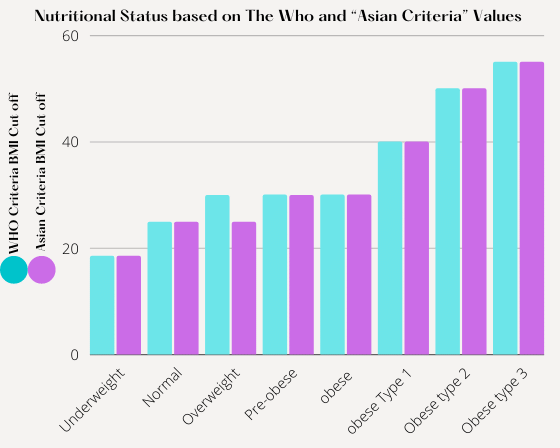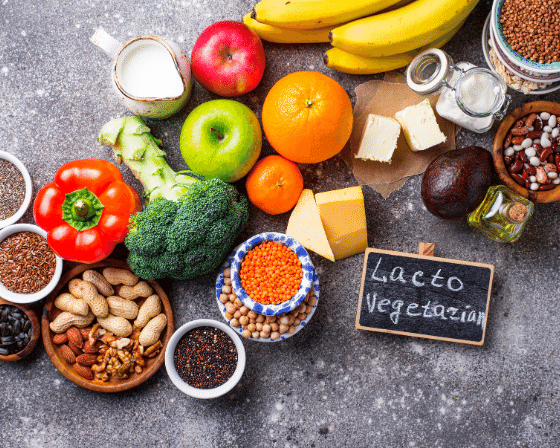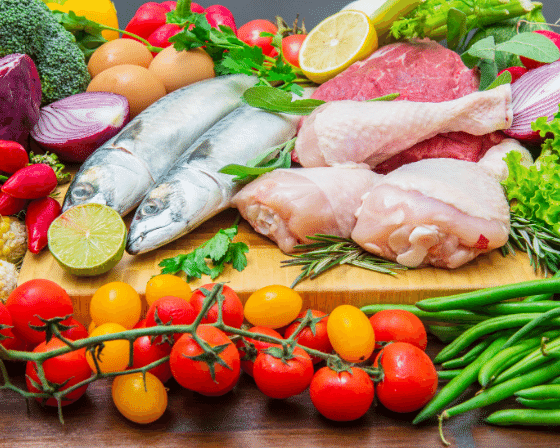views

Complete Indian diet plan for weight loss | Veg and non Veg
Table of Content
Introduction
Weight loss is often perceived as being unhealthy when it's pretty healthy in reality. It is natural for an individual to look for alternative unnatural weight loss techniques as it helps them to lose weight quickly without putting in much effort.
A physically challenging weight loss regime demands consistency and meticulousness. If you lose weight fast, it will get back to you quicker. Our aim should always be to gradually and steadily reduce weight and try to maintain longevity.
You can aim at losing 1 to 2 pounds per week as a starter.
Body mass is considered to be subjective. Every individual will differ in height and physical appearance, determining their healthy weight gain or loss.
A person who is 160 cm tall with a 60 kg to 62 kg body mass can be considered healthy, whereas someone who is 150 cm tall can be deemed overweight rather than someone with 170cm who is underweight with the same body mass. To understand how healthy you are, you should familiarise yourself with Body Mass Index (BMI).
Body Mass Index (BMI)

By definition, "Body mass index (BMI) is an inexpensive and easy screening tool that allows you to estimate excess fat and understand whether your weight is ideal, underweight, overweight, or obese."
BMI is calculated by measuring the weight in kilograms and dividing it by the square of your height in meters. Let us assume you are 1.8 m tall and weigh 75 kg. So your BMI would be (75 kg / 1.8 m2) = 23.36.
According to WHO, "The majority of the Asian population are at higher risk of diabetes and cardiovascular diseases. Hence, they tend to have a BMI lower than the WHO cut-off list for being obese or overweight. For the general people of India, BMI is computed in a different way and has additional categories based on body fat. The normal BMI cut-off for the Indian population is 23."
Ingredients of a perfect diet plan
Food that you consume can be categorized into different groups: Carbohydrates (Carb), Protein, Fat, Fibre, Vitamins, and Minerals.
Carbohydrates can be considered as the prominent suppliers of calories. To lose weight, one should go on a low-carb diet. Milk bread, sugary foodstuffs, or food groups high in starch content, like white rice, fall under this category. Including complex carbs like brown rice, millets, etc., in your diet can help curb your hunger.
Protein helps in gaining muscle mass. Milk solids, lentils, chicken, and varieties of meat are considered as protein. Substituting it with leafy vegetables, chickpeas and fish will help. Proteins are essential in bettering our health.
Fats are healthy when consumed at the right amount. They are essential for digestion. Polyunsaturated, monounsaturated, and omega-3 fatty acids are the right kinds of fat necessary for a healthy diet. Canola oil, olive oil are two examples of them.
Fibre influences digestion differently. The more fiber you include, the less hungry you will be. Good sources of fiber include oats, lentils, flax seeds, apples, and broccoli.
Vitamins and Minerals are abundant in vegetables and fruits. Having at least one type of fruit every day will give you excellent results in your weight loss journey.
1200 Calorie Diet Plan

Vegetarian Diet Plan for Weight Loss in 7 Days
Day 1
Early morning - 1 glass of cucumber-infused water on an empty stomach
Breakfast - A bowl of oats porridge preferably with skimmed milk and mixed nuts of your choice
Lunch - 2 wheat bread with lentils and mixed vegetable curry
Dinner - 2 wheat bread with lentils or vegetable curry or steamed leafy vegetables
Day 2
Early morning - 1 glass of cucumber-infused water on an empty stomach
Breakfast - 2 wheat bread stuffed with mixed vegetables along with 1 cup of yogurt
Lunch - Half a bowl of brown rice along with a vegetable lentil curry of choice
Dinner - Sautéed vegetables and green chutney
Day 3
Early morning - 1 glass of cucumber-infused water on an empty stomach
Breakfast - 2 slices of multigrain toast along with a cup of skimmed milk yogurt
Lunch - A bowl of sautéed vegetables along with paneer curry and green chutney
Dinner - Half a bowl of leafy greens with rice and 1 cup of lentil curry of your choice
Day 4
Early morning - 1 glass of cucumber-infused water on an empty stomach
Breakfast - A smoothie with nuts, fruit, and yogurt along with any fruit of your choice
Lunch - A cup of lentils, leafy greens, and two wheat bread
Dinner - Half a bowl of steamed brown rice and 1 cup of Chickpea curry
Day 5
Early morning - 1 glass of cucumber-infused water on an empty stomach
Breakfast - A glass of skimmed milk and a bowl of peas, and steamed food like poha
Lunch - Eat one vegetable or leafy green stuffed wheat bread with low-fat paneer curry and dal
Dinner - 1 wheat bread, a bowl of yogurt, and a bowl of mixed vegetable curry
Day 6
Early morning - 1 glass of cucumber-infused water on an empty stomach
Breakfast - 2 idlis with a bowl of sambar
Lunch - 1wheat bread with a bowl of curd and a bowl of mixed vegetable curry
Dinner - A cup of lentils with one wheat bread and little vegetables
Day 7
Early morning - 1 glass of cucumber-infused water on an empty stomach
Breakfast - You can have two besan chilla and green garlic chutney
Lunch - A bowl of steamed brown rice and spinach for lunch
Dinner - Low-fat paneer curry and one vegetable or leafy green stuffed wheat bread
In between fillers (if hungry) for all seven days include skimmed milk paneer (100 gm), one bowl of salad, 1 cup of seasonal fruits, and a glass of buttermilk, or a cup of tea with less milk and jaggery.
FREE- Download 7 Days Vegetarian Diet Plan for Weight Loss
Non-Vegetarian Diet Chart for Weight Loss in 7 Days

Day 1
Early morning - 1 glass of cucumber-infused water on an empty stomach
Breakfast - Bowl of sambar with two brown rice idlis/ low-fat paneer sandwich with mint chutney
Lunch - 2 whole-grain bread with a bowl of mixed-vegetable curry and one cup of dal
Dinner - Chicken curry with mixed vegetables and a fresh spinach salad or chicken gravy with one multigrain bread
Day 2
Early morning - 1 glass of cucumber-infused water on an empty stomach
Breakfast - 2 chana dal pancakes stuffed with mixed vegetables and a glass of milk/bread, one boiled egg with a bowl of seasonal fruits
Lunch - A bowl of fish curry with brown rice
Dinner - A bowl of khichdi with sprout salad
Day 3
Early morning - 1 glass of cucumber-infused water on an empty stomach
Breakfast - Egg omelets (made from 2 eggs)
Lunch - 2 whole-grain bread with a bowl of non-veg curry of your choice.
Dinner - 1 multigrain bread with a bowl of chicken curry (made with less oil) and a bowl of steamed or sautéed vegetables
Day 4
Early morning - 1 glass of cucumber-infused water on an empty stomach
Breakfast - 1 bowl of yogurt with sliced fruits and sunflower seeds/ vegetable poha with peanuts
Lunch - 1 whole-grain bread or a half cup of brown rice with a bowl of non-veg curry and a bowl of dal
Dinner - Chickpea curry with basmati rice and green salad
Day 5
Early morning - 1 glass of cucumber-infused water on an empty stomach
Breakfast - Vegetable dal and a glass of milk / 3-4 idlis with sambar
Lunch - Vegetable sambar with brown rice / 2 multigrain bread with non-veg curry of choice.
Dinner - Chicken curry with 80-100gm boiled sweet potatoes and mixed vegetables/chicken curry with one multigrain bread
Day 6
Early morning - 1 glass of cucumber-infused water on an empty stomach
Breakfast - Multigrain bread with avocado and sliced papaya
Lunch - Large bowl of salad with rajma curry and brown rice.
Dinner - Lentil pancakes with chicken tikka masala.
Day 7
Early morning - 1 glass of cucumber-infused water on an empty stomach.
Breakfast - Buckwheat porridge with sliced mango/fruit salad with a glass of milk.
Lunch - Vegetable soup with whole-grain bread / one bowl millet and dal khichdi with multigrain bread
Dinner - Masala-baked chicken with dal and one multigrain bread
FREE- Download 7 Days Non-Vegetarian Diet Plan for Weight Loss
Word of Wisdom
The above mentioned is a sample diet plan. You can consult a nutritionist for a more detailed diet plan that can help you out. If you plan to follow this particular diet plan, avoid milk solids like paneer if you are lactose intolerant. Remember that just concentrating on food habits doesn't make you healthy but consciously building a healthy lifestyle does.












